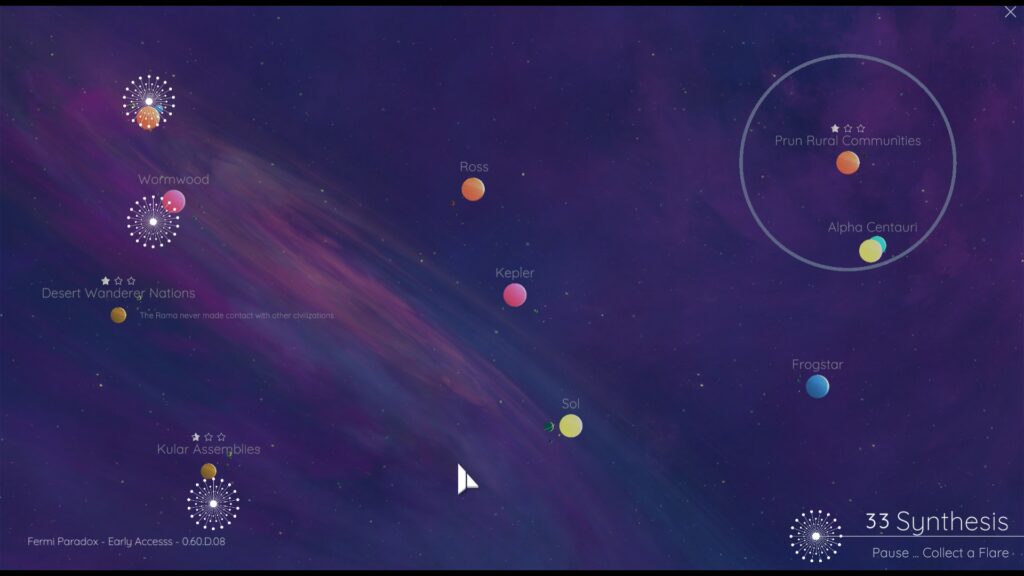The Fermi Paradox asks the question: if the universe is as large and old as it appears to be, why is it that Earth harbors the only life we can see? The more amusing version of this is: why can we see any stars at all? Why haven’t they all been converted into Dyson Spheres in service to a previous civilization that arose a mere million years earlier than our own? Given our own rate of development, it seems likely that any civilization serious about survival would have already captured any suns it could. This article is about the game with the same name, though.
The Fermi Paradox – the game, this time – doesn’t really answer that question. Instead, you act as a rebalancer of fate over a very small section of the galaxy. Several intelligent forms of life arise and it is up to you to nudge their fate towards discovering each other (or not, I guess that’s up to you). You have a limited ability to influence them, however, so sometimes you’ll want to let a civilization fall so you can help another one instead.
The pitch for this game is quite attractive to me (obviously, since I ended up playing it). Unfortunately, the gameplay is a little limited and breaks down towards the middle of your playthrough. There are so few planets in your corner of the galaxy and travel between them happens so infrequently (even in the age of lightspeed travel) that it felt as if I spent the latter half of my time just waiting for things to happen with no real sense of urgency or resource limitations.
The game is still in early access, so it’s possible these issues will be resolved with time and the course of the story is solid enough that I could see it evolving into something worthwhile (though the base mechanics do feel a little too “mobile”-inspired for my liking). Tier Two for now.
